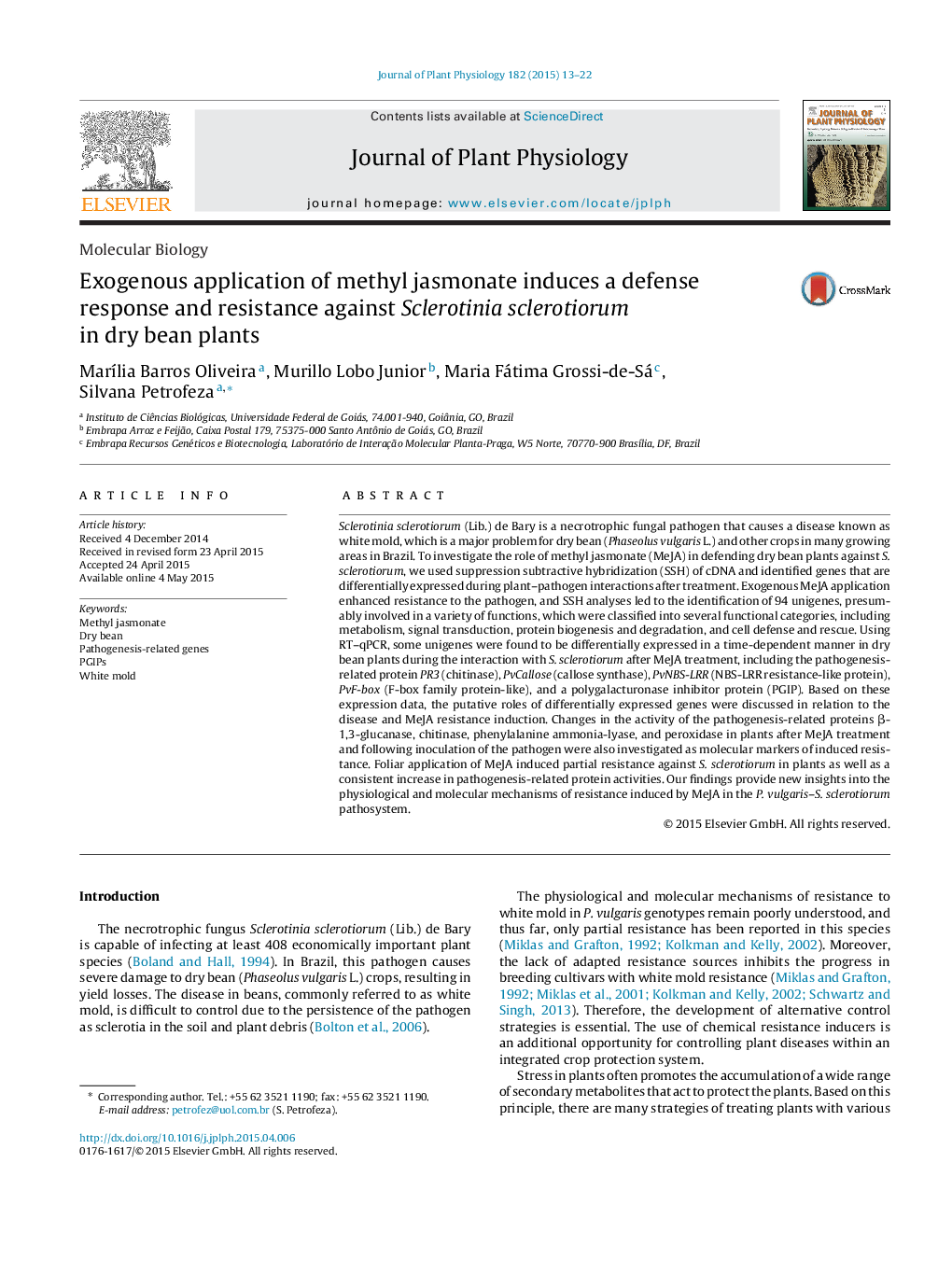| Article ID | Journal | Published Year | Pages | File Type |
|---|---|---|---|---|
| 2055590 | Journal of Plant Physiology | 2015 | 10 Pages |
Sclerotinia sclerotiorum (Lib.) de Bary is a necrotrophic fungal pathogen that causes a disease known as white mold, which is a major problem for dry bean (Phaseolus vulgaris L.) and other crops in many growing areas in Brazil. To investigate the role of methyl jasmonate (MeJA) in defending dry bean plants against S. sclerotiorum, we used suppression subtractive hybridization (SSH) of cDNA and identified genes that are differentially expressed during plant–pathogen interactions after treatment. Exogenous MeJA application enhanced resistance to the pathogen, and SSH analyses led to the identification of 94 unigenes, presumably involved in a variety of functions, which were classified into several functional categories, including metabolism, signal transduction, protein biogenesis and degradation, and cell defense and rescue. Using RT–qPCR, some unigenes were found to be differentially expressed in a time-dependent manner in dry bean plants during the interaction with S. sclerotiorum after MeJA treatment, including the pathogenesis-related protein PR3 (chitinase), PvCallose (callose synthase), PvNBS-LRR (NBS-LRR resistance-like protein), PvF-box (F-box family protein-like), and a polygalacturonase inhibitor protein (PGIP). Based on these expression data, the putative roles of differentially expressed genes were discussed in relation to the disease and MeJA resistance induction. Changes in the activity of the pathogenesis-related proteins β-1,3-glucanase, chitinase, phenylalanine ammonia-lyase, and peroxidase in plants after MeJA treatment and following inoculation of the pathogen were also investigated as molecular markers of induced resistance. Foliar application of MeJA induced partial resistance against S. sclerotiorum in plants as well as a consistent increase in pathogenesis-related protein activities. Our findings provide new insights into the physiological and molecular mechanisms of resistance induced by MeJA in the P. vulgaris–S. sclerotiorum pathosystem.
